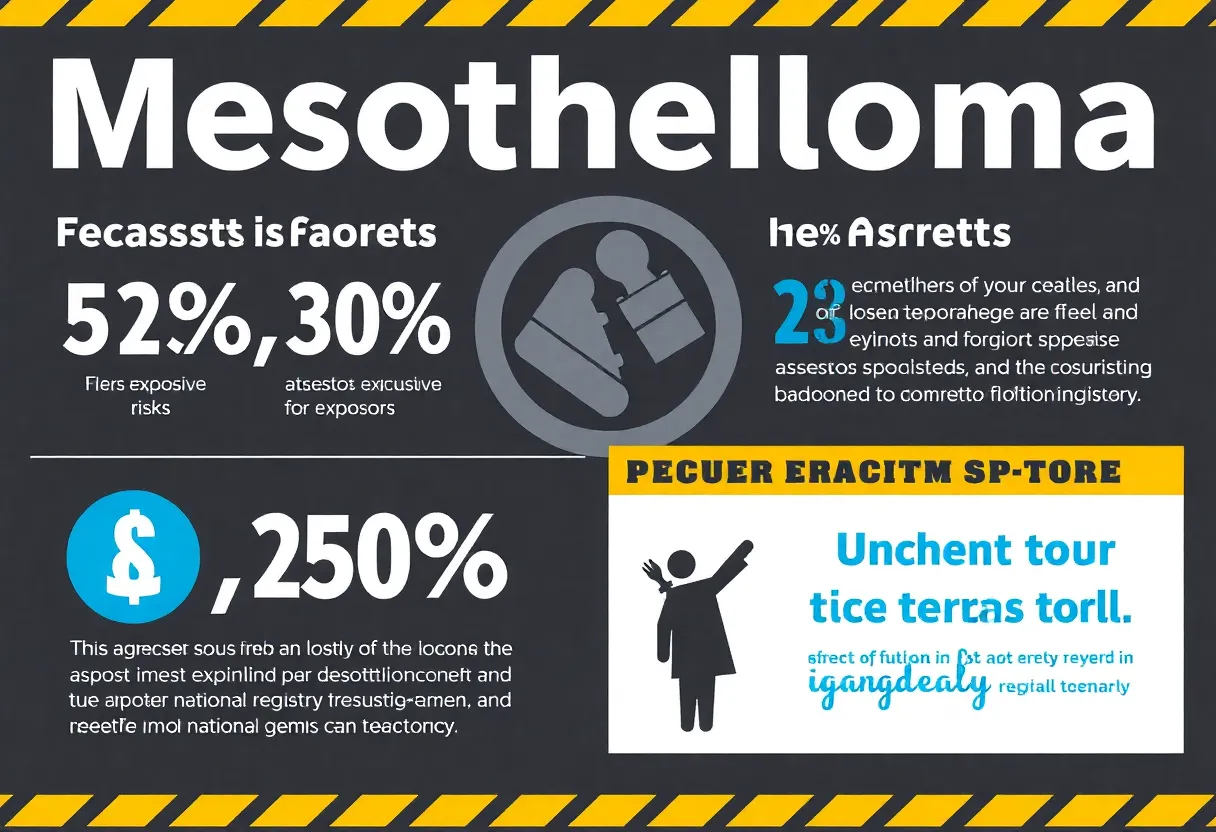News Summary
Exploring the necessity for a national mesothelioma registry and the ongoing risks associated with asbestos exposure, particularly for vulnerable populations.
The Need for a National Mesothelioma Registry and Ongoing Asbestos Concerns
In recent decades, the issue of mesothelioma – a pernicious cancer primarily caused by exposure to asbestos – has shown signs of decline, mainly due to the introduction of stricter regulations on asbestos use. However, this decline should not lead to complacency, as the disease remains a significant concern, particularly for vulnerable populations such as veterans and industrial workers who were exposed to asbestos until the mid-1990s.
The Realities of Mesothelioma Diagnosis
One sobering reality in the arena of mesothelioma is the high incidence of misdiagnosis and late detection among at-risk groups. Current estimates suggest that around 3,000 new cases of mesothelioma are diagnosed annually across the United States, with approximately 900 cases among veterans alone. The reasons for this late diagnosis are multifaceted but stem primarily from insufficient awareness and screening protocols surrounding the disease among healthcare professionals.
A proposal for a National Mesothelioma Registry was made five years ago, aiming to collect and analyze data to improve patient care. Regrettably, progress on this initiative has been disappointingly slow, leaving many to wonder what the ramifications will be if action is permanently stalled. Without a registry, opportunities to enhance mesothelioma diagnosis and treatment methodologies may fade away.
Ongoing Asbestos Risks
Despite the progress made, asbestos-related risks remain a pressing threat—particularly due to the aging infrastructure across the United States. With hard evidence that asbestos exposure can lead to mesothelioma decades after the initial contact, those who were exposed up until the 1990s are still at risk. This concern is especially pronounced among veterans who served in war zones where asbestos exposure was prevalent.
A telling statistic comes from Wisconsin, where from 1999 to 2017, the state reported a staggering 6,815 asbestos-related deaths, with 1,295 directly attributed to mesothelioma and 362 to asbestosis. This poignant figure can be particularly alarming given that Wisconsin is home to a substantial population of veterans, many of whom served prior to the enforcement of protective regulations.
Inadequate Patient Care and the Role of Institutions
Evidence suggests that current patient care for mesothelioma patients is inadequate. The delayed diagnosis often leads to survival rates that are dishearteningly low, often less than a year post-diagnosis. Although feasibility research has been conducted regarding the National Mesothelioma Registry, critical issues such as effective detection methods and patient confidentiality remain unresolved. The lack of coordinated research efforts could spell disaster for future treatment protocols and birth a cycle of poor patient care.
The urgency to institutionalize the registry cannot be overstated, as both the Departments of Defense and Veterans Affairs play crucial roles in supporting this initiative. Their backing could lead to significant advancements in the standard of care for individuals affected by asbestos exposure.
Environmental Factors and Asbestos Cleanup
Additionally, environmental risks continue to pose health threats. In 2024, a significant cleanup operation was initiated by the EPA at the former 5R Processors facility in West Bend, Wisconsin—yet such efforts are often costly and funded by taxpayers. As communities grapple with contaminated industrial sites, the necessity for a national strategy on asbestos management becomes increasingly imperative.
As organizations and individuals advocate for change, it is essential to unite in ensuring that all people exposed to asbestos receive the adequate and equitable care they deserve. The establishment of a National Mesothelioma Registry serves as a foundational step toward creating a comprehensive understanding of the disease, allowing for more informed research and improved patient outcomes. With continuous advocacy, mesothelioma can be addressed effectively, paving the way for a future where fewer lives are irrevocably altered by this malignant condition.
Conclusion
As we confront the ongoing challenges posed by mesothelioma and asbestos exposure, the importance of a coordinated, national approach becomes ever more apparent. The historical precedent and current implications underline the need for immediate action; failure to create the registry may result in continued poor patient care and stagnated research efforts. With the stakes high and the health of countless individuals in the balance, advocating for comprehensive knowledge and data surrounding mesothelioma is not just an option—it is a necessity.
Deeper Dive: News & Info About This Topic
HERE Resources
Breakthrough in Mesothelioma Treatment: New Gold Complex Shows Promising Results
Louisiana’s Hidden Danger: The Rising Tide of Mesothelioma Cases
Significant Gaps in Lung Cancer Screening Rates Among High-Risk Populations
Family of Carpenter Settles Case Against Medway Council
Asbestos Discovery Prompts Safety Concerns in Willebroek
Bresee Tower and Courthouse Annex Set for Demolition: Major Changes Ahead
The Ongoing Battle Against Mesothelioma: New Research Offers Hope
Tragic Loss of R&B Star Angie Stone in Car Accident
Tragic Loss: Linda Loree Weburg Succumbs to Mesothelioma at 82
Tragic Loss: Actor and Writer James Houghton Dies from Mesothelioma



















